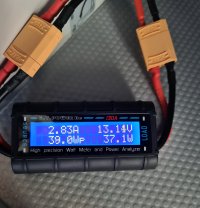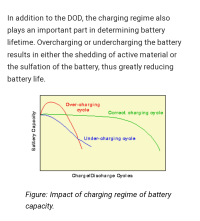G
G3WRT
They also 'self discharge'.I was surprised that my leisure battery had gone down to 38% without even using it for a few weeks. That battery has a different chemistry to the main car battery. It is a deep discharge type and so can be drained and recover. The main starter battery cannot. In the light of this observation I am going to plug the car into the mains more often to charge it. Those batteries are expensive.
















